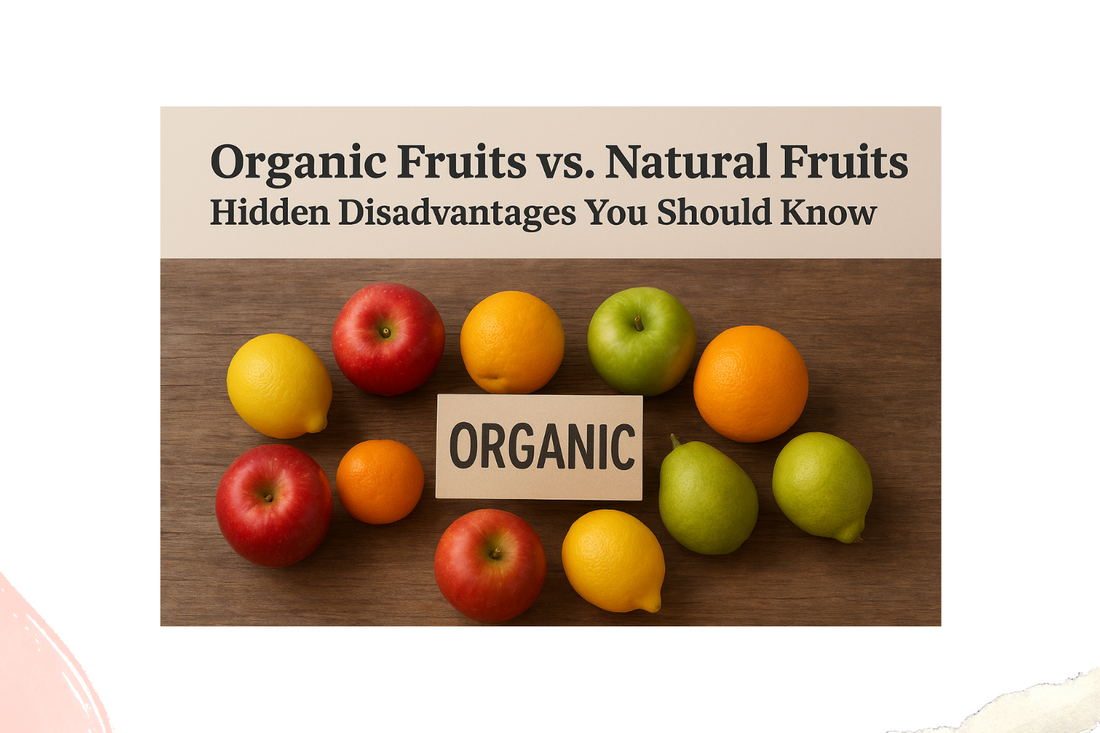Organic Fruits vs. Natural Fruits: Hidden Disadvantages You Should Know

When it comes to eating healthy, most people assume that organic fruits are always better than natural fruits. While organic produce has its benefits—like being grown without synthetic pesticides or fertilizers—there are also disadvantages that often get overlooked. Before you fill your basket with “organic-only” fruits, it’s important to understand how they compare to natural fruits.
1. Higher Price Without Guaranteed Extra Nutrition
-
Organic fruits usually cost 30–60% more than natural fruits because of labor-intensive farming methods.
-
However, studies show that the nutritional difference between organic and natural fruits is minimal. Both contain vitamins, minerals, and antioxidants essential for health.
-
In many cases, you may just be paying extra for the “organic” label.
2. Shorter Shelf Life
-
Organic fruits often spoil faster because they are grown without synthetic preservatives or protective coatings.
-
Natural fruits (non-organic but still fresh) typically last longer in storage and transport, making them more practical for families and businesses.
3. Limited Availability
-
Organic farming is done on a smaller scale, so organic fruits are not always available year-round.
-
Natural fruits, on the other hand, are widely available due to conventional farming methods, ensuring a consistent supply in all seasons.
4. Pesticide-Free Doesn’t Mean Pest-Free
-
Many people believe organic fruits are completely pesticide-free, but that’s not true. Farmers are allowed to use natural pesticides, which may not always be safer than synthetic ones.
-
Natural fruits may use regulated pesticides in minimal amounts that are carefully tested for safety.
5. Lower Yield, Higher Environmental Pressure
-
Organic farming produces less yield per acre, which means it requires more land to grow the same quantity of fruits.
-
This can sometimes put extra pressure on land and water resources compared to efficient natural farming techniques.
6. Taste and Quality Are Not Always Superior
-
The belief that organic fruits always taste better is subjective.
-
In blind taste tests, many people cannot tell the difference between organic and natural fruits. Freshness, ripeness, and handling often matter more than the organic label.
